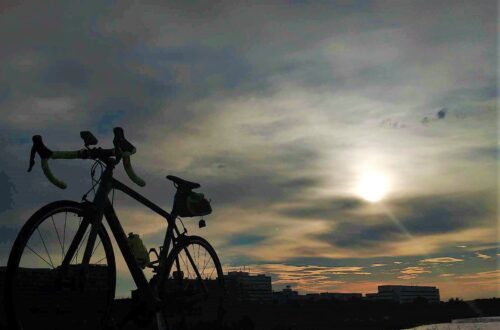I’m old, but like to think I do all right.
However, it’s getting increasingly harder to kid myself.
I can’t hear, can’t see, can’t chew properly because my teeth are going or gone, can’t remember anything and can’t learn new subjects no matter how hard I try as nothing sinks in. I wake up to pee several times a night (which is still better than not waking up to do so), barely sleep and feel constantly harangued and harassed by life. Arthritis in my hands is agonizing and makes nearly any task gargantuan, not to mention turns cycling, my sole saving grace in terms of physical activity, into an excruciatingly painful act.
I’m broke, getting broker and see no light at the end of the tunnel.
To be frank, I can’t afford to stay alive, so a part of my hopes it all ends sooner rather than later (provided I have ensured Mrs. Kangaeroo’s safety from predators in the event of my demise).
Unfortunately, I don’t think I’m alone in Japan, which is facing a dystopian future thanks to oldies such as myself.
The National Institute of Population and Social Security Research recently announced that as a result of rapid aging and a low birthrate, Japan’s current population of about 125 million will plummet to about 87 million in 50 years’ time and down to around 50 million in under 100 years from now.
Having been overwhelmed by crowded Japanese cities in the past, this kinda seems attractive in a way. But it doesn’t quite work like that. One of the benefits of cycling is that I have been able to see much more of the countryside in Japan than I would otherwise have been exposed to. So many areas are abandoned, shuttered, decaying. The big cities like Tokyo and Osaka are doing all right, but let’s not forget that Tokyo has been obliterated twice in the past century, by nature and by wartime bombing, and many times in its existence. A massive earthquake or volcanic eruption could occur anytime, and both are overdue according to traditional measures. So, things are looking a little shaky for Japan as well as for myself.
Some of the problems Japan is likely to face include the disappearance of innovative products, which will hit the manufacturing industry, just because it’s so hard to think up something new when you’re so old. Automobile-related industries will be hit by a scarcity of qualified technicians, so repairs will become difficult, if not impossible. Not enough IT experts will arise, creating a banking and finance crisis. Regional newspapers and television stations will disappear. Retail industries will be decimated. There will not be enough drivers to meet logistical needs. Farming needs won’t be met. Few younger people will eliminate demand for new home building. Roads will become degraded and repairs harder to carry out. Lifestyle infrastructure in general will decline. Society will need to learn how to deal with large-scale deaths as many of the elderly die quickly. Schools will shut down, forcing long commutes on many children. Japan’s military will include 60-somethings to fill the ranks.
Ad infinitum.








